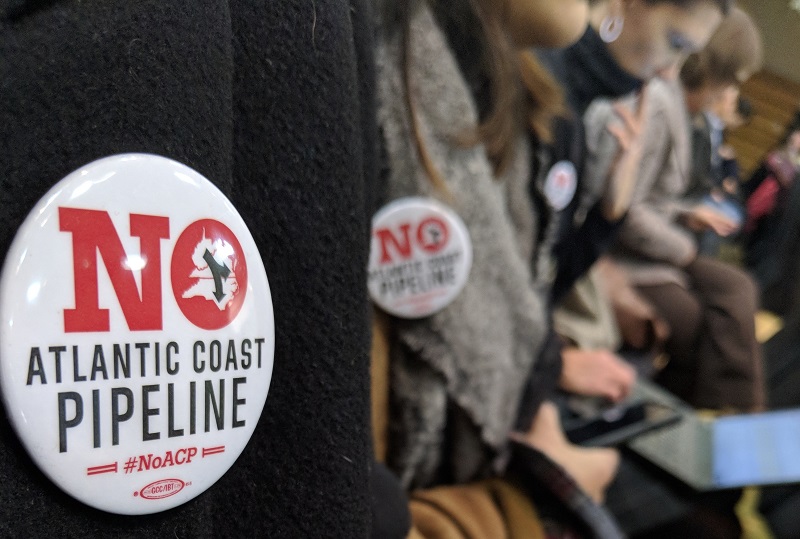On Monday, the Virginia State Water Control Board met to consider a crucial certification for the proposed Atlantic Coast Pipeline, a project of Dominion Energy, Duke Energy and others that would pump fracked gas from West Virginia through Virginia and into North Carolina. On Tuesday, December 12, after two days of contentious discussions and impassioned public comments, the Board allowed the ACP to continue along the process by a close vote of 4-3.
Duke and Dominion are spinning this as a win. But is it?
In front of hundreds of attendees and over 115 speakers (the vast majority of which were vociferously anti-pipeline), the Board adopted an amendment that would require the ACP’s backers to clear four significant hurdles before they could formally receive permission to begin construction. The amendment ties approval of the section 401 certificate1 to four documents: the Karst Mitigation Plan, Annual Standards and Specifications, the Erosion and Sediment Control Plan, and the Stormwater Management Plan. This has the practical effect of, at minimum, delaying the effective date of the certificate several months until the Virginia Department of Environmental Quality has reviewed and approved these plans.
There were 300 to 400 people in attendance at each of the meetings with the overwhelming majority opposing the pipelines. The speakers came from all over Virginia and represented a variety of backgrounds and viewpoints. There were geologists, engineers, attorneys, landowners, and concerned community members who all provided testimony and evidence that construction of the ACP would threaten water quality and public health in the Commonwealth.
While this amendment gives Virginians more time to organize against and fight this dirty, dangerous pipeline, it’s important to note the amendment says that while DEQ is to report to the Water Control Board on the four plans, the final sentence states the "Board may consider further actions..." This could mean that it will only come back before the Board if four board members vote to bring it back, so the fight goes on. Grassroots pressure on the incoming Northam administration will be critical because decisions related to the ACP will now be the responsibility of Governor-elect Northam’s administration.
So, Virginians, keep up the pressure! Keep speaking out and showing up to preserve and protect our pristine streams, waterways and reservoirs. The health of our water, families and communities depends on it.
1Although the Federal Energy Regulatory Commission (FERC) regulates interstate gas pipeline construction, section 401 of the Clean Water Act gives states the authority do deny a pipeline’s certification if it would degrade the state’s water quality beyond acceptable levels.
